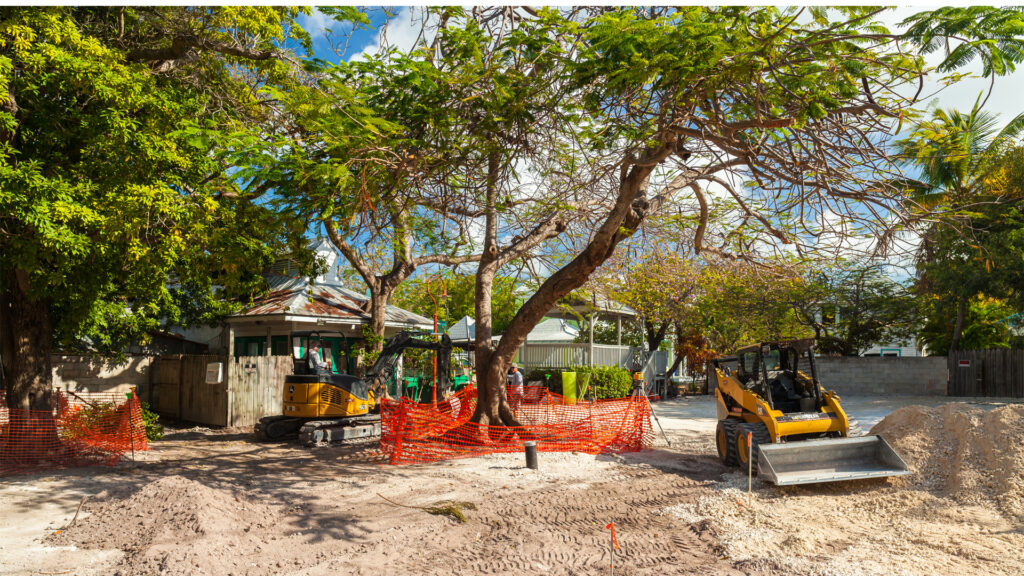By Paul Owens
With the 2023 session of the Florida Legislature just past the halfway mark, members have already demonstrated their eagerness to carry out the priorities of Gov. Ron DeSantis — with at least one glaring exception.

A couple of months before the session began, the governor issued a commendable executive order entitled “Achieving Even More Now for Florida’s Environment.” The order called for significant state investments to restore the Everglades, improve water quality, protect communities from flooding and sea-level rise, preserve the Florida Wildlife Corridor and restore the Indian River Lagoon. Based on the draft budgets from the House and the Senate, members appear poised to make these investments.
But the governor’s order also called for state and local cooperation “to improve local government long-term comprehensive planning that ensures sustainable growth while protecting our natural resources.”
And legislators aren’t simply ignoring this priority; they are attacking it. Rather than acting to improve comprehensive planning, they have advanced legislation that would irreparably damage it.
Comprehensive plans guide decisions about where, when and how communities grow. They are created with the input of community residents and the ultimate approval of their elected representatives. Addressing elements such as transportation, housing, public services and conservation, comp plans are intended to be the foundation for environmentally and fiscally sustainable growth.
In a state growing as fast as Florida, and a region where development is exploding like Central Florida, such planning is essential not only to protect our natural resources, but also to effectively and efficiently keep up with the demand for public services and maintain our quality of life. Everyone in a community has a stake in the orderly growth called for under comp plans.
When comp plans are amended, it’s often to pave the way for expanded development. But state law provides that citizens can legally challenge an amendment if they believe it would violate their comp plan. This provision is critical to ensure that communities abide by their plans. But legislation now working its way through the Florida Senate and House would all but eliminate these citizen challenges, and render comp plans unenforceable.

If SB 540/HB 359 becomes law, citizens who file those challenges and lose could be forced to pay five- or six-figure legal costs run up by the winners, local governments and developers who intervene to defend amendments. This risk of financial ruin would effectively put an end to citizen challenges to comp plan amendments. Since lawmakers enacted a similar law in 2019 requiring losers in challenges to development orders to pay the legal costs of the winners, those challenges have almost disappeared.
Backers of this legislation have argued it would discourage frivolous legal challenges from citizens who just don’t like the growth permitted by comp plan amendments. But there are already provisions in state law that subject anyone filing a frivolous challenge, or a challenge simply intended to delay an amendment, or somehow harass its sponsors, to paying the legal costs of the other side. Unlike those provisions, which are reasonable (who really wants frivolous challenges?) SB 540/HB 359 would take aim at citizens with legitimate, legal grounds to challenge an amendment.
Bill backers also have argued that the more appropriate way for citizens to oppose comp plan amendments is by voting against the public officials who approved them. But meanwhile, legally flawed amendments may have cleared the way for irreversible changes to a community’s landscape and character — changes that would have been ruled out if the comp plan had been respected.
A bad bill when it was introduced, SB 540/HB 359 has actually gotten worse during the committee process. Sponsors have added an amendment that would rescue a comp plan amendment permitting a huge warehouse complex to be built on agricultural land targeted for Everglades restoration outside Miami-Dade County’s urban development boundary.

After months of deferrals requested by the developers, the comp plan amendment was narrowly passed by the County Commission but rejected by state reviewers because it had been approved after a statutory deadline for action had expired. The amendment to SB 540/HB 359 would retroactively extend the deadline. This is an outrage — a rewriting of state law to grease the skids for a megadevelopment on environmentally sensitive land. It’s also another example of legislators undermining one of the governor’s priorities, Everglades restoration.
If legislators don’t come to their senses and stop this bill in its tracks, we hope the governor will defend his priorities — with his veto pen.
Paul Owens is president of 1000 Friends of Florida, a nonpartisan citizen-supported organization dedicated to environmentally and fiscally sustainable development. This opinion piece was originally published by the Orlando Sentinel, which is a media partner of The Invading Sea.



